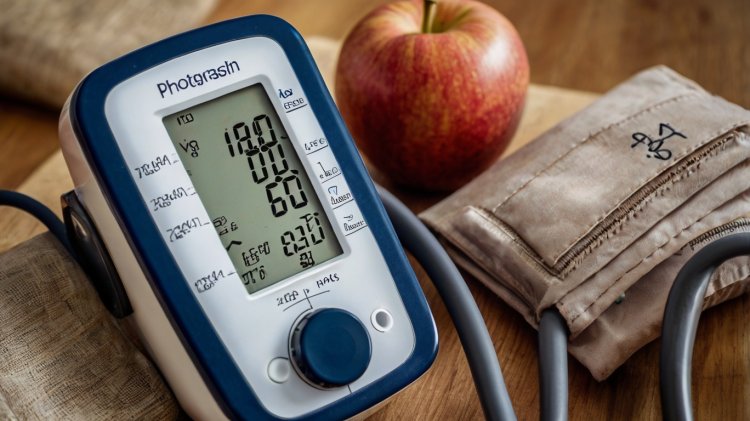10 Natural and Effective Ways to Lower High Blood Pressure
Learn how to manage high blood pressure naturally with effective lifestyle changes. Discover the top tips for reducing hypertension and improving heart health without medication.

Natural and Effective Ways to Manage High Blood Pressure
Introduction
High blood pressure, or hypertension, is often referred to as the "silent killer" because it can lead to severe health issues without any noticeable symptoms. While medications are commonly used to manage blood pressure, adopting a healthier lifestyle can significantly reduce the need for medication or enhance its effectiveness. In this article, we explore natural and effective ways to lower high blood pressure and maintain heart health.
1. Maintain a Healthy Weight
Carrying excess weight can increase blood pressure, making weight loss one of the most impactful lifestyle changes. Losing even a small amount of weight, such as 5-10% of your total body weight, can help reduce blood pressure and improve overall cardiovascular health. Additionally, monitoring waist size is crucial, as excess abdominal fat is a significant risk factor for hypertension.
2. Exercise Regularly
Engaging in regular physical activity, such as aerobic exercises like walking, jogging, swimming, or cycling, can lower blood pressure by 5-8 mm Hg. Incorporate at least 30 minutes of moderate exercise most days of the week. High-intensity interval training (HIIT) and strength training are also effective in managing blood pressure levels.
3. Follow a Heart-Healthy Diet
Adopt dietary approaches such as the DASH (Dietary Approaches to Stop Hypertension) or Mediterranean diet. These diets emphasize fruits, vegetables, whole grains, lean proteins, and healthy fats. Potassium-rich foods like bananas, spinach, and avocados help balance sodium levels and reduce blood pressure.
4. Reduce Sodium Intake
Limiting sodium intake to less than 2,300 mg per day (or ideally 1,500 mg) can significantly lower blood pressure by 5-6 mm Hg. Choose low-sodium alternatives, avoid processed foods, and cook meals at home to control salt levels.
5. Limit Alcohol Consumption
Consuming alcohol in moderation can lower blood pressure by approximately 4 mm Hg. This means no more than one drink per day for women and two for men. Excessive drinking not only raises blood pressure but also reduces the effectiveness of blood pressure medications.
6. Quit Smoking
Smoking damages blood vessels and raises blood pressure. Quitting smoking improves heart health, reduces hypertension risk, and extends life expectancy. Seek support groups or cessation programs if needed.
7. Manage Stress
Chronic stress contributes to high blood pressure. Identify stressors in your life and develop coping strategies such as:
-
Practicing mindfulness or meditation.
-
Engaging in enjoyable hobbies.
-
Setting aside time for relaxation and self-care.
8. Improve Sleep Quality
Sleep disorders like sleep apnea can raise blood pressure. Aim for 7-9 hours of quality sleep per night. Maintain a consistent sleep schedule, create a comfortable sleeping environment, and address any underlying sleep issues with a healthcare provider.
9. Monitor Blood Pressure at Home
Home monitoring helps track progress and ensures lifestyle changes or medications are effective. Use a reliable device and record your readings to share with your healthcare professional during checkups.
10. Stay Consistent with Checkups
Regular visits to your healthcare provider are essential for managing hypertension. They can guide you in making adjustments to your lifestyle or medications based on your progress and overall health.
Conclusion
Managing high blood pressure naturally requires dedication and consistent effort, but the rewards include a healthier heart and improved quality of life. By adopting these lifestyle changes, you can take control of your blood pressure and reduce the risk of heart disease, stroke, and other complications.
FAQs
1. How quickly can lifestyle changes lower blood pressure? Some changes, like reducing sodium or exercising, can show results within weeks, while others may take longer.
2. Can I avoid medication by adopting a healthier lifestyle? In many cases, lifestyle changes can reduce the need for medication, but consult your doctor for personalized advice.
3. Is it safe to monitor blood pressure at home? Yes, home monitoring is safe and helpful for tracking progress. Ensure you use a reliable device and follow your doctor’s instructions.
4. What foods should I avoid with high blood pressure? Avoid processed foods, salty snacks, sugary drinks, and high-fat meats. Opt for fresh, whole foods instead.
5. How does stress impact blood pressure? Chronic stress increases heart rate and constricts blood vessels, leading to higher blood pressure. Effective stress management can help lower it.










